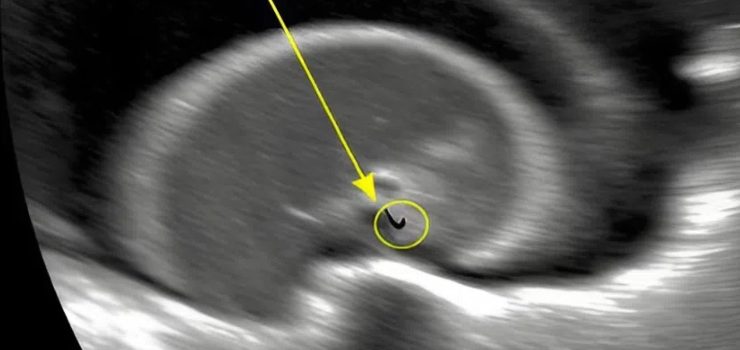Ovarian cancer is often referred to as a silent killer because its symptoms are subtle and easy to miss, especially in the early stages. Since there’s currently no standardized screening method for detecting ovarian cancer early, most people only receive a diagnosis once the cancer has already spread to other parts of the body, which makes it much harder to treat.

This is why paying attention to your body and noticing even the smallest changes can make a huge difference. The disease usually begins in the ovaries, which are located on either side of the uterus near the fallopian tubes, but it can also originate in the peritoneum, a thin layer of tissue that lines the abdominal cavity and supports the ovaries. Once diagnosed, treatment can include surgery, chemotherapy, or targeted therapies aimed at eliminating the cancer and keeping the patient cancer-free. However, identifying the symptoms early is key to seeking help in time. One of the most common early signs is abdominal bloating. According to the National Library of Medicine, bloating is the second most reported symptom people notice before being diagnosed with ovarian cancer.
This isn’t the kind of bloating you might feel occasionally after a big meal or before your period—this is persistent bloating that sticks around. It may also be accompanied by visible swelling in the abdomen due to fluid accumulation as the cancer spreads. Another symptom to watch for is pelvic or lower abdominal pain. This pain might resemble menstrual cramps or just feel like a pressure or dull ache in your pelvis. If it’s recurring or doesn’t seem to have a clear cause, it’s important to mention it to your doctor. Some people report that the pain feels different from their usual menstrual discomfort, and trusting that instinct could help lead to an earlier diagnosis. A third silent symptom is feeling full very quickly when eating. While it’s normal to feel full after a large meal, you should be concerned if you find yourself feeling stuffed after eating only a small portion.
This sensation, also known as early satiety, may be the result of fluid buildup or a growing mass putting pressure on your stomach. Another important warning sign is changes in urinary habits. Since the ovaries are close to the bladder, a tumor can exert pressure on this organ, leading to frequent urination, an urgent need to pee, leakage, or discomfort while urinating. These symptoms can be easily mistaken for a urinary tract infection or a side effect of aging, but if they persist, they should not be ignored. Irregularities in your menstrual cycle can also be a sign. In 2022, a study found that 13 percent of patients with ovarian cancer experienced vaginal bleeding. Spotting between periods, bleeding after menopause, or unusual discharge that doesn’t match your normal pattern could all point to something more serious.
These changes might not seem like a big deal at first, but combined with other symptoms, they warrant a medical evaluation. Bowel changes can also signal a problem. The intestines can be affected by a growing tumor, which may cause digestive issues like indigestion, constipation, or diarrhea. Some people also experience back pain, unexplained fatigue, bleeding after sex, pain during intercourse, and even unintentional weight loss or gain. These symptoms are easy to dismiss or attribute to other common conditions, but ignoring them can lead to delayed diagnosis and limited treatment options. It’s important to remember that having one or more of these symptoms doesn’t mean you definitely have ovarian cancer, but being aware of these signs and bringing them to your doctor’s attention is a smart and proactive step. Your body often tries to tell you when something’s wrong, and learning how to listen to it might just save your life. Even if it turns out to be something less serious, it’s better to check and be sure than to ignore the warning signs. Early detection is crucial, and being informed is the first step in protecting your health.





